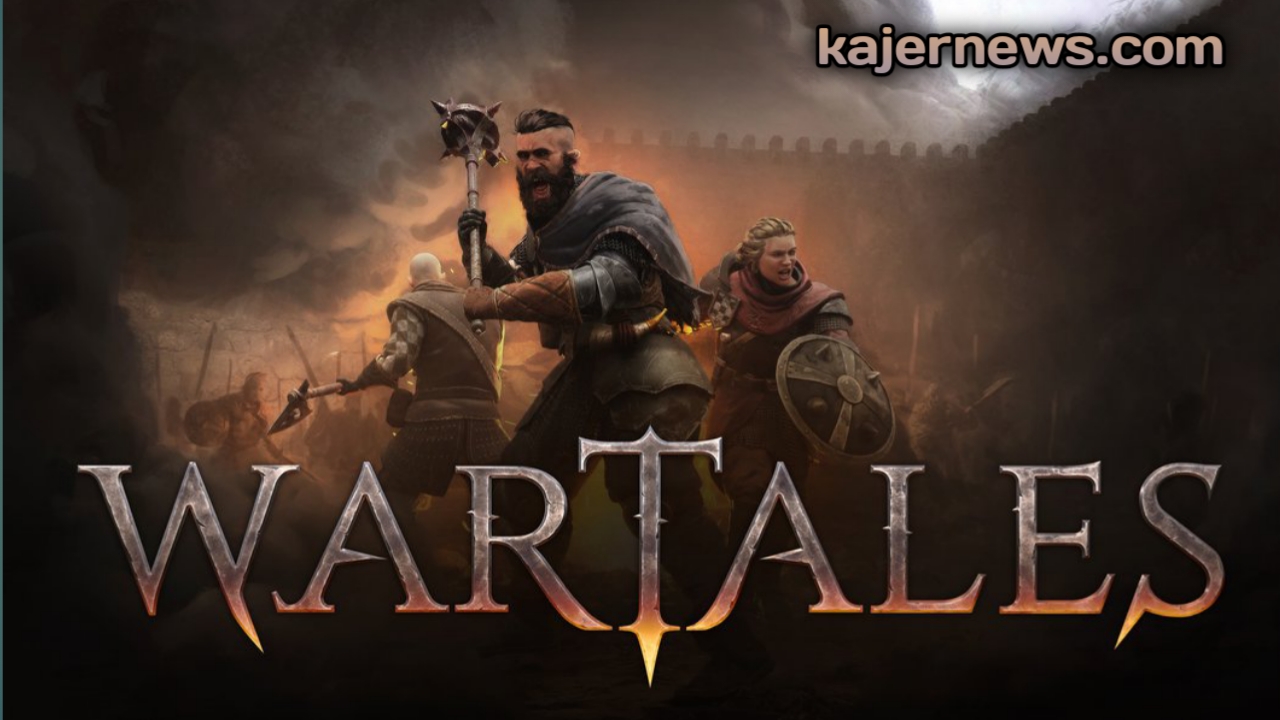Review of Wartales: Solid Title with Plenty of Potential
Review of Wartales: Wartales is a decent game with a lot of promise; it has a fantastic idea, but some dubious design choices.
Review of Wartales: What Is It?

In that it has permadeath mechanisms for each member of your mercenary band and an even darker tone than Shiro’s previous games, Wartales differs slightly from them.
Many of the game’s early narrative threads are driven by the refugee problem that has resulted from the war-torn nation where the game is set. In addition to fighting, the region is under attack from a sickness that is spreading and spectral animals that prey on anybody who ventures through the mist.
In Wartales, mercenaries with a strong sense of adventure take advantage of possibilities presented by war, plague, and hideous creatures. They test their abilities and morality as they seize the chance to improve their lot in life.
Will you be a brave mercenary who defends the defenceless and opposes oppressors? Or are you going to turn to thieving and banditry, sacrificing your honour for gold?
Playtime

The main gameplay loop of Wartales is moving across a large map from one important point to another, resting at a central hub (often a town) in between missions. By accepting contracts or using influence to purchase information from brokers, players may advance the plot.
Fulfilling the missions that arise from these might provide a narrative element to the place. The initial sector of the game is Tiltren County, an autonomous state that is still somewhat distant from the centre of the conflict. Refugees from other parts of the Kingdom have flocked to the County because of its relative peace.
You may earn cash and gear by completing a lot of one-off missions here, but certain quests also play a part in “The Fate of Tiltren,” where you have to decide whether to support the locals or the refugees.
The majority of quests must be finished via fighting, which takes place on a grid-based battlefield. When moving units and acting, the player’s party alternates with the AI. A few intriguing design choices set this tactical role-playing game apart from others in its gameplay.
The player’s characters can take turns in any sequence at first. Players get to select which character to move as long as it’s their turn.
The player and the AI take turns most of the time, however the player can take advantage of the AI’s predetermined move sequence by removing the player on the other side’s next mover. Additionally, when troops engage in physical combat, an engagement mechanism locks them with an opponent, prohibiting them from moving or aiming at another opponent.
This gives the game an interesting new strategic element and emphasises how crucial it is to keep your ranged soldiers away from melee opponents.
Players must also provide for the mercenaries’ needs outside of battle, feeding them well and seeing to it that their armour is kept in good condition.
Characters may sustain injuries or have their armour rendered ineffective after a combat if they sustain enough damage. These are remedied by using spare tools to mend your armour and medicating your wounds.
However, the game has an unavoidably uneven feel to it. There aren’t many resources available to improve equipment, and even though there are plenty of trees in the game’s forest, timber can only be harvested at certain resource spots located across the area.
In order to advance in this game, armour is crucial because character growth from levelling up isn’t very helpful when it comes to the more difficult parts. As a result, collecting coins to keep your troops and resources to upgrade your characters’ armour, one character at a time, is essentially a grind.
The turn order noted above contributes to the uneven difficulty of the game. It makes no sense to build up a large army because in Wartales, every army you encounter scales in number based on your troop count.
Moreover, maintaining a large army will cost you more resources and provide you with no advantages because you can never outnumber an enemy troop.
Additionally, there aren’t many consequences for banditry and theft, which makes it incredibly simple to get into these illegal activities. In this game, committing crimes will build up a Wanted metre.
Once full, patrolling guards will attempt to stop you and take you into custody. Even if notoriety accompanies them, it doesn’t prevent your troop from visiting any of the destinations and doesn’t even negatively impact your troop’s reputation. As a result, they are still welcomed with open arms.
Tale
Wartales are set against a backdrop of war. This has led to a severe refugee crisis, which serves as the inspiration for several of the game’s first storylines.
Plot lines are employed rather loosely here because the majority of the tale begins with the acceptance of a contract and concludes with the victory in a conflict. Stories don’t usually relate, although certain choices you make now might have a modest impact on future stories.
However, there doesn’t seem to be much weight behind your decisions, and in many of these situations, making the wrong decision doesn’t seem to have a lot of consequences.
Wartales is an open-world sandbox game that lets players create their own narratives via the distinctive adventures that their ragtag group of mercenaries encounters.
This is conveyed through the missions and contracts your characters complete, the character development you create for them, and the experiences they have throughout the course of their travels.
The environment serves just as a background for the tales the player imagines for their characters, and the events are only a means of bringing those stories to life.
Similar to other permadeath games with generic characters, players have a unique link with the people they raise, which intensifies the grief of each and every death.





